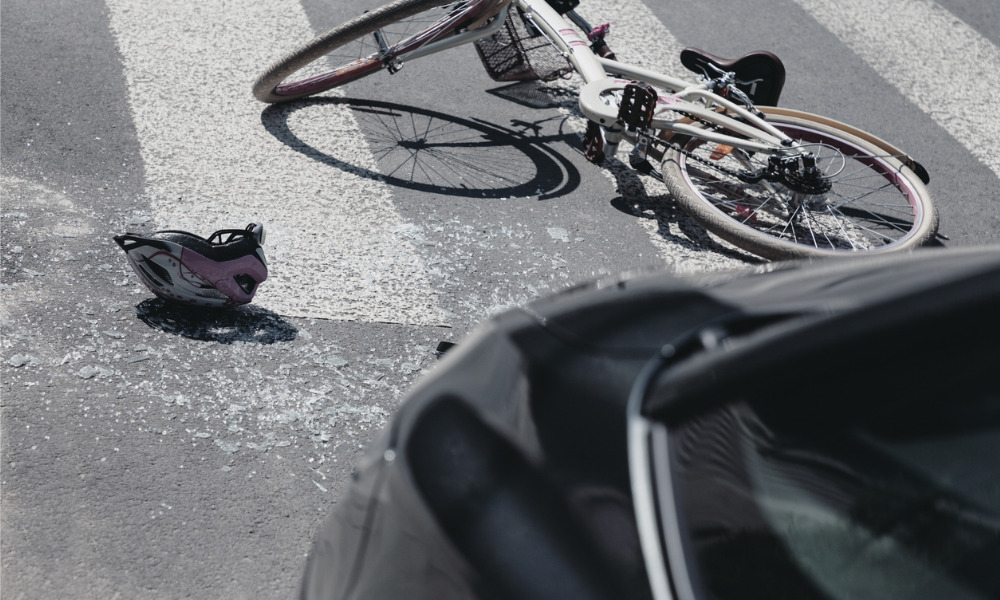Professional MMA fighter injured in traffic accident; witness not available to testify in person

The British Columbia Court of Appeal has ordered a new trial for a personal injury action because the lower court judge improperly assessed the reliability of an out-of-court statement made by a witness.
In Davis v. Jeyaratnam, 2022 BCCA 273, Garett Davis, a professional mixed martial arts (MMA) fighter, was riding his bicycle along Broadway in Vancouver when he collided with a vehicle driven by Navaratnaraja Jeyaratnam. Davis strongly denied that he had been cycling on the sidewalk, as prohibited by the Motor Vehicle Act. Jeyaratnam, on the other hand, denied having struck Davis.
Out-of-court statement
The specifics of the collision were heavily disputed between the parties. To corroborate his version of events, Davis hired Ian Carter to interview Abdi Isse, a witness to the accident. Carter recorded his conversation with Isse, but he claimed he had lost the tape recording by the time of trial. Nonetheless, Carter was able to produce rough handwritten notes from the actual interview.
Davis tried to introduce as evidence Isse’s out-of-court statement. The judge held a preliminary examination to determine the admissibility of Isse’s statement and concluded that it was inadmissible under the principled approach to hearsay evidence, which provides thresholds for necessity and reliability.
Specifically, the judge found issue with the reliability threshold. He was highly critical of Davis’ failure to contact Isse and present him in court to test his statement. The judge also concluded that without the tape recording, there was no way of knowing what Isse had really said in the out-of-court interview. The judge ultimately dismissed Davis’ claim, finding that his negligent actions were the sole cause of the accident.
On appeal, Davis argued that the judge wrongly excluded portions of Isse’s statement for the truth of their contents. Davis further argued that the judge improperly focused on the reliability of Carter as the narrator rather than the reliability threshold of the statement itself.
Reliability threshold
The appeal court noted that an out-of-court statement tendered for the truth of its contents is presumptively inadmissible as hearsay because the declarant cannot be cross-examined in court. Nonetheless, hearsay evidence may still be admitted when it meets the principled exception, governed by the tests of necessity and threshold of reliability.
The court found the necessity threshold was satisfied by the fact that Isse had left the country and could not be located despite extensive search efforts. As a result, he could not be presented in court and resorting to his out-of-court statement became necessary.
The reliability threshold requires that the circumstances under which the statement was made demonstrate that the statement was inherently trustworthy. According to the court, the statement must be so reliable that contemporaneous cross-examination of the declarant would add little to the process. The reliability threshold serves as a substitute for the cross examination of the declarant, not the narrator, especially if the narrator is available to testify and be cross-examined in court. The appeal court acknowledged that Ian Carter committed some errors in the manner in which he took Isse’s statements. However, said it found that the judge should not have considered them in assessing threshold reliability.
Further, the court also found that the judge failed to conduct a proper analysis and overlooked a significant body of evidence that could have weighed in favour of Davis’ version of events and his ultimate credibility. In the end, the court ordered a new trial because it was impossible for it to determine what really occurred given the conflicting evidence presented by the parties.










